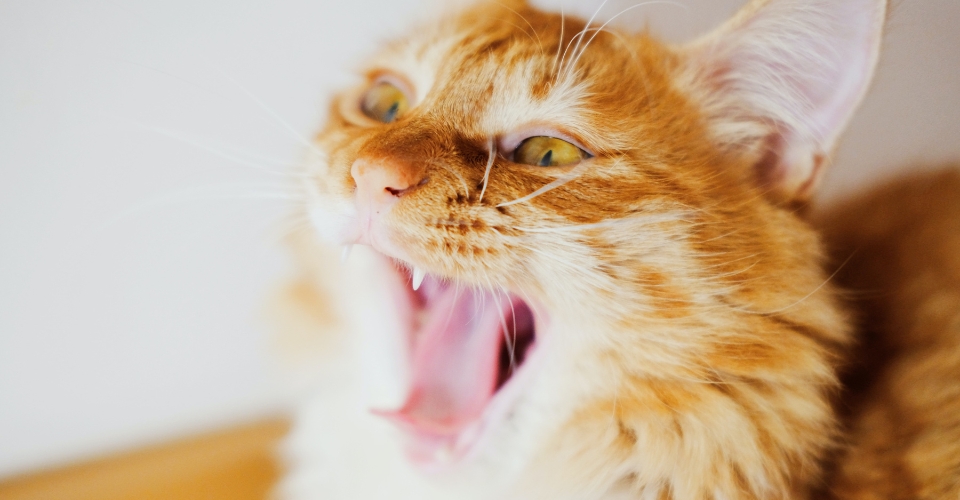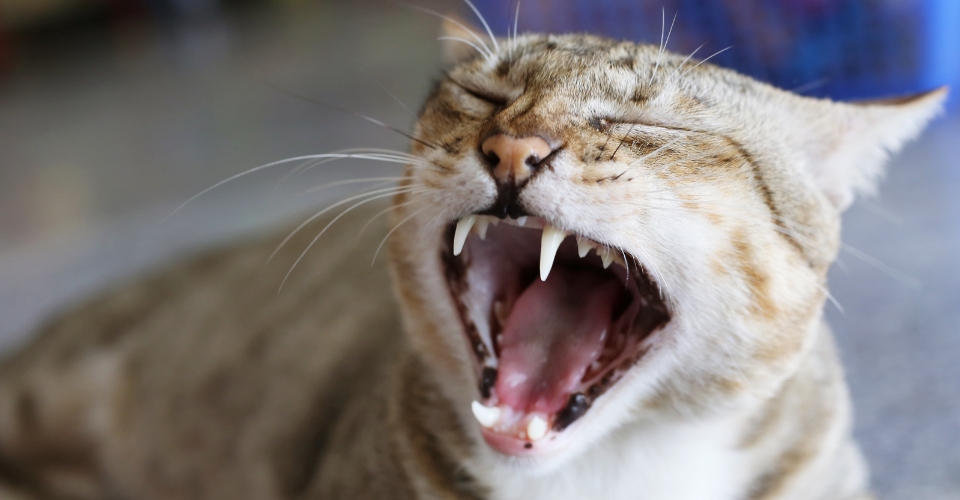Though Siamese kitties – be they lynx point, flame point, chocolate point, or blue point – look extremely cute and friendly, keeping them could become challenging as they are prone to a series of behavioral issues.
Siamese cats are extremely needy, vocal, territorial, hyperactive, attention seekers, and may often become aggressive.
No doubt, Siamese cats are prone to behavioral issues, but what most cat owners fail to recognize is that most issues in cat personalities arise due to our mistakes – not offering due attention, adequate care, exercise, etc.
But worry not, we have compiled a list of 11 Siamese cat behavior problems along with signs, solutions, and extreme cases.
Siamese Cat Behavior Problems With Sign and Solutions
1. Siamese Cats Are Needy
Siamese kitties need attention and validation from others; in fact, they are among the most attention-seeking cat breeds. Though the reason behind this is their affectionate demeanor and loyalty towards their owner, their clinginess sometimes becomes a problem.
If Siamese cats fail to elicit enough attention, their mental well-being can get affected.
What Are the Signs?
| How to Get Rid of It?
| What Can It Lead to?
|
2. Siamese Cats Are Prone to Separation Anxiety
Owing to their human-oriented nature, Siamese cats develop a strong bond with their favorite people. So, when their favorite person is not around for a long time, they tend to develop separation anxiety. They do not tolerate staying away from their preferred humans for more than eight hours. After all, they had been “The Royal Cats of Siam” – how can they live without a group of servants around them?
What Are the Signs?
| How to Get Rid of It?
| What Can It Lead to?
|
3. Siamese Cats Can Be Very Vocal
Often regarded as the most vocal cat breed known to date, Siamese cats can make noises anytime, day or night. Not shying away from their expressions, they tend to talk and meow very loudly – sometimes comparable to the shrill voice of a crying baby! Mostly, this behavior occurs due to boredom or when these kitties need a toy or food.
What Are the Signs?
| How to Get Rid of It?
| What Can It Lead to?
|
4. Siamese Cats Relish Scratching
Siamese are highly energetic cats, and one of their favorite physical activity is scratching whatever comes their way, be it a carpet, furniture, wall, door, or window. Apart from getting exercise, Siamese cats exhibit this behavior to keep their claws healthy, their nails trimmed, and to introduce the scent to nearby places.
What Are the Signs?
| How to Get Rid of It?
| What Can It Lead to?
|
5. Siamese Cats Are very Possessive
Siamese cats are highly territorial and possessive. They hate sharing their toys, humans, beds, and everything with other cats. This often leads to trouble when you bring home a new cat to your Siamese. Siamese might try to dominate the other cat and refuse to share her toys or you with the new cat. However, note that when introduced and socialized properly, Siamese cats could get along well with other pets.
What Are the Signs?
| How to Get Rid of It?
| What Can It Lead to?
|
6. Siamese Cats Might Litter Box Issues
When bored, stressed, or feeling unhealthy, Siamese cats do not prefer using litter boxes. If your cat is not adequately exercised or you are not giving ample attention to your cat, she may start peeing outside the litter box. Moreover, if your Siamese cat has been peeing outside the litter box, it could also mean that she has a urinary tract infection.
What Are the Signs?
| How to Get Rid of It?
| What Can It Lead to?
|
7. Siamese Cats Get Depressed
Their biggest lively feature is their hidden enemy. Though Siamese cats are joyful and active, they can easily get depressed when they are bored or their activity needs are unmet. At first, they might look exhausted with lazy meows when the depression ensues, but they might also turn violent after a few moments.
What Are the Signs?
| How to Get Rid of It?
| What Can It Lead to?
|
8. Siamese Cats Often Become Aggressive
Siamese cats often get aggressive when they develop separation anxiety due to being alone for a long time. Besides that, boredom could also turn Siamese cats into monsters whenever they get bored.
What Are the Signs?
| How to Get Rid of It?
| What Can It Lead to?
|
9. Siamese Cats Might Stay Awake at Night
Though some sources say they are not nocturnal, Siamese cats may play or hunt rather than sleep at night. They might also sleep during the night as well as during the day. Like other cats, Siamese is most active at dawn and dusk.
What Are the Signs?
| How to Get Rid of It?
| What Can It Lead to?
|
10. Siamese Cats Might Play Rough
Siamese cats are known to play rough. Since these cats are muscular and active, they need to channel their energy. Therefore, sometimes, they can swat, pouch, scratch, or even bite their playmates out of excitement: it would be difficult to tell if your two Siamese cats are fighting or playing! When these cats grow up, their nips end up becoming bites (they bite so much!).
What Are the Signs?
| How to Get Rid of It?
| What Can It Lead to?
|
11. Siamese Cats Can Overdo Some Things
Also known as compulsive behavior, Siamese cats can do certain things excessively. Though it is normal, it can sometimes become a headache for the owners. For instance, if your cat licks her paws excessively or grooms her whole body too much, she will be at risk of ingesting a lot of furs which can cause some serious troubles.
What Are the Signs?
| How to Get Rid of It?
| What Can It Lead to?
|





